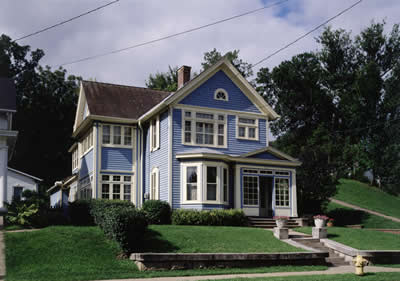|
|
|
Weekly Bible Study Review
|
|

Missed an Issue? No problem. View our Archives.
|
Class Schedule
Go to www.theocentrix.org click on the "Events" tab
for maps and more information.
|
|

Covenant Class
Lake Avenue Church
Family Life 201-202
309 N Lake Ave
Pasadena CA 91101
Sundays 9:00 am |

Cafe Class
Culture Cafe
1359 N Altadena Drive
Pasadena CA 91107
Tuesdays 11:00 am
|
|

Villa Class
Pasadena CA
Call for location
(626) 531-6641
Wednesdays 7:00 pm |

Read-to-Believe Class
Lake Avenue Church
Family Life Room 201
309 N Lake Avenue
Pasadena CA 91101
Thursdays 7:00 pm
|

Arbo Class
LA County Arboretum
301 N Baldwin Ave
Arcadia CA 91007
Saturday 12:00 noon
Once per month
January 12, 2013 February 9, 2013 March 9, 2013 April 6, 2013 May 4, 2013 June 1, 2013 June 29, 2013 July 27, 2013 August 24, 2013 September 21, 2013 October 19, 2013 November 16, 2013 December 14, 2013 |
|
|
 Greetings! Greetings!
This newsletter is sent to people who attend one of Sandy's weekly Bible studies. The left column has the current class schedule. Be sure to watch for the links in each article. Clicking on them will lead you to charts, diagrams and additional articles related to your class.
Anyone can subscribe to this free newsletter by using the link in the upper left corner. If you would like to forward this issue to a friend all you have to do is click on the link below.
|
| |
 Tuesday Cafe Class Tuesday Cafe Class
Exodus | |
Exodus 20:1-21:27
20:1-17 "And God spoke all these words" when He gave the Israelites the Ten Commandments. He said He is the one who brought them out of slavery, therefore they are not to have any other gods. They must not make or worship any idols. The Lord is a jealous God and will punish "the children for the sin of the fathers to the third and fourth generation of those who hate" Him. But He shows love to 1,000 generations of those who love Him and keep His commands. The Israelites must not misuse the name of the Lord. They must keep the Sabbath holy and do no work on it because the Lord Himself rested from His work of creation on the seventh day. He blessed the Sabbath and made it holy. They must honor their parents so that they as a nation may live a long time in the Promised Land. They must not murder, commit adultery, steal or give false testimony against their neighbor. Finally, the Israelites must not covet anything that belongs to their neighbor.
v. 18-21 The people were frightened by the display of thunder, lightning, smoke and trumpet blasts. They stayed far away and told Moses, "Speak to us yourself and we will listen. But do not have God speak to us or we will die." Moses tried to reassure them by saying that God was only testing them so that they would fear God and not sin. Moses then walked into the thick darkness where God was.
v. 22-26 The Lord again told Moses to tell the Israelites to avoid idolatry. Moses was to make an altar out of earth on which to offer animal sacrifices. The Lord said, "Wherever I cause my name to be honored, I will come to you and bless you." They were going to be traveling around for the next 40 years and the Lord would cause His name to be honored in many different places along the way. He was very specific that if Moses made an altar of stones they must not be "dressed," that is, shaped with tools. Also, there were to be no steps leading up to the altar "lest your nakedness be exposed on it."
Click to read more... |
| |
 Thursday Read-to-Believe Class Thursday Read-to-Believe Class
Hebrews
| |
Hebrews 12:18-29
12:18-21 Two mountains are contrasted here-- Mount Sinai and Mount Zion. Click to see diagram.
From Exodus 19 and 20 the author describes Sinai as a physical mountain that can be touched and that was burning with fire, darkness, gloom and storm. There was a trumpet blast and a voice that terrified the Israelites. Even Moses was trembling with fear. The Hebrew readers have not come to this mountain but to another one that is very different.
v. 22-23 They have come to Mount Zion, the heavenly Jerusalem, the city of God. Instead of fire and darkness there are thousands of angels in joyful assembly praising God. There is the church of the firstborn (Jesus) and their names are written in heaven. These believing readers have come to God. He is the judge of all people. But the believers do not need to fear His judgment because Jesus is the mediator of the new covenant. Mount Sinai is associated with the old covenant but this new Jerusalem is the place of the new. In keeping with the rest of this letter-- Mount Sinai was good but Mount Zion is better.
v. 24 Jesus is the mediator of the new covenant. Abel was an innocent man who was killed by his brother. Jesus was an innocent man who was also killed by his brothers. But the blood of Jesus "speaks a better word than the blood of Abel" because Jesus' blood brings forgiveness of sin while Abel's blood called for justice.
v. 25 Again the readers are warned not to "refuse God" or turn away from Him. If the ancient Israelites "did not escape when they refused Him who warned them on earth" (remember, a whole generation died in the wilderness because of their unbelief), then these readers who are being warned "from heaven" will not escape either.
v. 26-27 At Mount Sinai the Lord's voice shook the earth, but now He will shake the earth and the heavens (Haggai 2:6). The Lord will remove whatever can be shaken and only that which cannot be shaken will remain. The physical things that people rely upon will be gone and only their faith will remain.
v. 28-29 Since the believing readers are receiving an eternal kingdom that cannot be shaken they are to be thankful to God and worship Him with reverence and awe. God is a consuming a fire.
More next time.
--Sandy Blank |
|
Since ancient times the Bible has been read aloud to groups of people who were eager to hear the words of Life. We're really no different today. Believers still look to the Bible for wisdom and instruction. We belong in the Word together. Thank you for your participation in these classes. I hope you will pass this email on to others and invite them to attend a Bible study.
Grace and peace, Sandy Blank
|
|
|
|
|
 |  Tuesday Cafe Class (continued) Tuesday Cafe Class (continued) |
Exodus 20:1-21:27
21:1-11 The Israelites, who were also known as Hebrews, were allowed to own slaves from among their own people. But there were certain regulations. In class we discussed some of the cultural reasons that might explain why female slaves were treated so differently from male slaves.
|
If the slave is.... |
then the Hebrew master.... | |
a single Hebrew man |
must let him go free in the 7th year of his slavery. | |
a married Hebrew man |
must let him and his wife go free in the 7th year of his slavery. | |
a single Hebrew
man and the master
gives him a wife
who bears him children |
must let him go free in the 7th year but the slave's wife and children belong to the master. | |
a single Hebrew man and the master gives him a wife who bears him children |
may take the man before the judges, pierce his ear and allow him to be his slave for life so he will not have to leave his wife and children. | |
a young woman who
is sold by her father into slavery |
is not to let her go free in the 7th year as the male slaves do | |
a young woman who
is sold by her father into slavery |
must let her be redeemed (bought back) if she does not please the master. The master must not sell her to foreigners. | |
a young woman who
is sold by her father into slavery |
if he gives her to his son in marriage then the master must no longer treat her as a slave but as a daughter. She must be given food, clothing and marital rights or else be set free. |
v. 12-36 When it comes to personal injuries notice how many of the offenses are punishable by death.
|
Offense |
Penalty | |
a man strikes another man and kills him |
death penalty | |
unintentionally killing another man |
flee to a city of refuge | |
premeditated murder |
death penalty | |
attacking one's father or mother |
death penalty | |
kidnapping |
death penalty | |
cursing one's father or mother |
death penalty | |
hitting a man with a stone or fist |
if the injured man gets up and walks around outside with his staff then the assailant just pays for the victim's loss of time | |
beating a male or female slave with a rod and the slave dies |
unspecified punishment | |
beating a slave with a rod |
no punishment as long as the slave gets up after a day or two | |
men who are fighting and
hit a pregnant woman |
husband determines the fine if there is no serious injury otherwise, eye for eye, tooth for tooth, wound for wound | |
hitting a servant and destroying an
eye or knocking out a tooth |
set the servant free to compensate for their loss |
Much more next time.
--Sandy Blank
Back... |
|
|
| This newsletter is maintained by Sandy Blank (Ph.D. Educational Studies, Biola; MA Biblical Studies, Grace University). If you would like further information about any of her classes or would like to know how to start a Bible study in your area please contact her at sandyblank@theocentrix.org. This newsletter is sponsored by Theocentrix, Inc., a 501(c)(3) nonprofit organization dedicated to promoting God-centered Bible literacy. Visit www.theocentrix.org for more information. |
|
|